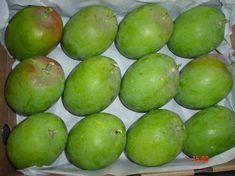
A recent study of India’s competitiveness in the mango market suggests that the country’s focus should be firmly fixed on this crop. “The export potential of mangoes can be gauged from the fact that India produces 46 per cent of the world’s mangoes,’’ says a study carried out by the Jamnagar Mango Development project for Reliance Industries Ltd (RIL).
Mangoes account for 42 per cent of the land surface area under fruit in India, producing an average annual harvest of
12 million tonnes. The Alphonso variety accounts for 35-40 per cent of the £100m mango export market.
“One of the principal reasons for Indian mangoes not having a large share of the export segment is the absence of any marketing,’’ the study concludes, highlighting agronomic education of farmers, yield improvement and post-harvest management as the key factors that would facilitate exports.
RIL has entered into the fresh produce market with a bang in recent years, and signalled to growers that they have huge opportunities to increase exports to the UK and other countries. The company buys directly from farmers, and believes it is therefore at a huge price advantage. It also offers the agronomic advice to its growers that the study suggests.
“There is tremendous potential for exporting Indian mangoes to the UK,” says Amit Kamalakar, research and development manager at RIL’s fresh food company, Reliance Fresh Ltd. An ambitious export plan was fulfilled by Reliance subsidiary Jamnagar Farms Pvt Ltd, Asia’s largest mango orchard at Moti Khavadi.
“We will produce the world’s best-quality mangoes to meet the requirements of several countries, and especially UK retail chains,” says Nita Ambani, wife of Mukesh Ambani, managing director of RIL. The Jamnagar farm is 100 per cent owned by RIL, and struck a deal last month that has opened the export doors for its Kesar mangoes to hit the European market.
RIL has also expressed its intention to get involved with other retail giants like Marks & Spencer, Tesco and Sainsbury’s, as well as with Harrods, which has confirmed that supplies will start in earnest next year. “Harrods is officially stocking Reliance Kesar mangoes in its flagship Knightsbridge store. We believe that placement in Harrods is testament to the quality of this prime fruit, as only the best of the lot makes it to the shelves of this store,” says RIL.
The company’s horticulture division adds thatHarrods asked for 140t of Kesar mango this year, but due to the order being stuck late in the season, only 3t made the journey in the end. But there is already a target of more than 200t for export in place for next season.
Expansion in the overseas market is expected to boost Indian domestic production. Rakesh Mittal, vice-chairman of Bharati Enterpises, said: “This is an opportunity which is larger than telecom; which is larger than IT.” He comes from an informed background, as Bharati has invested heavily in telecommunications and information technology, and only recently moved into exporting fruits and vegetables to the west.
“India has become the back office of the world,” Mittal says, referring to the country’s key position in the business process outsourcing (BPO) industry. “What we are trying to create here is BPO in the agricultural sector. We will grow for the world.”
The Indian government has recognised the market potential and amended the Agriculture Produce Marketing Council Act to allow corporations to produce and market mangoes. Private companies are, not surprisingly, moving quickly to get a slice of the action.
RIL is India’s largest private sector company, and seized its opening early, almost by chance. Eight years ago, in what was ostensibly an effort to “green” up its petroleum refinery complex at Jamnagar in the western Indian state of Gujarat, RIL planted more than 100,000 mango trees, producing 37 varieties of the fruit. That turned out to be a smart decision. The profit margin from mangoes was found to be “far higher than that from any of the petroleum product Reliance produces,” says Hital Meswani, executive director of RIL Group.
RIL now has a 387t mango crop, and until now has sold the majority into the domestic marketplace. “Since there is a huge domestic market, all types of mangoes produced get sold at different prices. Farmers do not bother about standardisation, which can fetch them an even better price on both the domestic and international markets,” says Vishwas Joshi of Vashai Wholesale Fruit & Vegetable Market in Mumbai.
Mango consignments to Saudi Arabia and Malaysia were sent back this year. Exporters are hoping that the entry of the big corporates will guarantee quality.
Indian farmers need motivation to produce the mango varieties that will appeal to western tastes. The town of Malihabad in Uttar Pradesh, for instance, is known as India’s mango capital, but the principal varieties grown there - Chausa, Langdaa and Dusshehri - are said to be too sweet for western palates. Consequently, Malihabad is being marginalised in the battle for the international market by Ratnagiri in Maharashtra, home to the universally more popular Alphonso mango. Its farmers have been more ready to abandon traditional varieties that appeal only to Indian tastes.
As well as Reliance Fresh, other companies are hoping to bite into the expanding export market, including Godrej, India Tobacco Company, Bharati Enterprises, Jain Irrigation and Galla Foods. Some are already in the mango juice business or processing mango pulp. But they are now considering exporting fresh mangoes, and have conducted feasibility studies in mango orchards.



